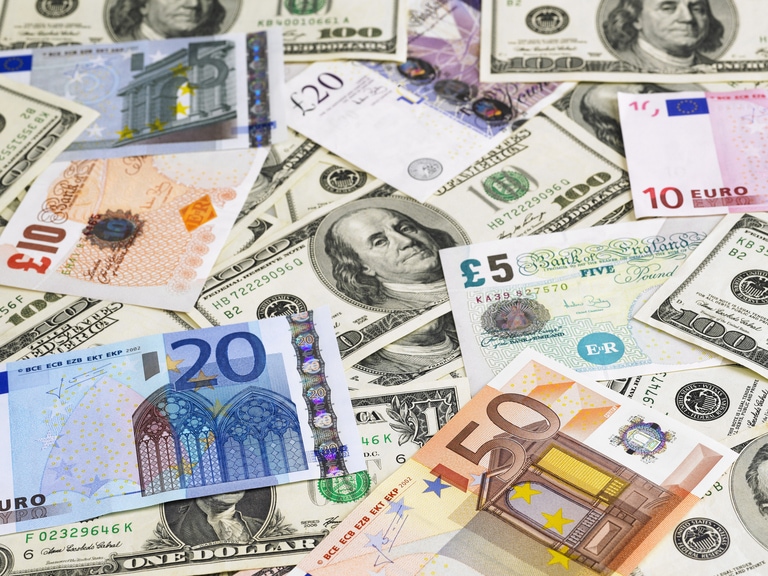Having posted three successive days of new-all-time highs, the FTSE 100 has slipped back and has closed the week lower, as rising yields and a jump in oil prices due to Russian output cuts serves to bring this record-breaking week to a close.
Europe
Today’s Q4 GDP numbers showed the UK economy stagnated in the final quarter of 2022, thus avoiding the prospect of a weekend of headlines depicting that the UK economy had slipped into a technical recession. In reality, the nuances of whether the UK is or isn’t in a recession are likely to be lost on the majority of people, many of whom are struggling with their finances on a day-to-day basis.
Nonetheless the economic numbers, while disappointing, did point to some areas of strength, with a 14.8% rise in administration and support services, which includes the likes of hospitality and travel agents. The lesson here it seems is if you want to support the UK economy you should leave the country and book a holiday! Levity aside, today’s economic numbers also point to the challenges facing the UK economy over the next three-to-six months, as the country grapples with strikes and inflation, which is still stubbornly high above 10%, and a government which seems intent on keeping the economy in the slow lane with a series of tax rises, which are due to kick in at the start of Q2.
The best performers today have been the oil majors, with BP finishing the day and the week, as the best performer after announcing that it is slowing its plans to cut oil and gas production to a 25% drop by 2030, down from 40%, meaning the prospect of better margins in the months ahead. The shares are up over 15% this week.
Among today’s biggest fallers, Standard Chartered shares have slumped back after Abu Dhabi’s FAB once again denied reports that it was evaluating an offer for the Asia-based UK bank. There was similar speculation a month ago which was also swiftly denied, however the fact that this story keeps getting re-heated suggests that there might be a kernel of truth to it. The bigger problem will be satisfying regulators and navigating a web of complexity if FAB does eventually make a move.
Money manager Abrdn is also lower after being downgraded by HSBC with the bank expressing caution over the prospects for this sector due to the rising cost of living, which could limit the amount of capital inflows in respect of long-term savings. St. James Place is also lower.
JD Sports shares are also lower after Adidas reported that it would probably see a €700m operating loss in 2023 due to fall out from the cancellation of its sponsorship deal with Kanye West, and its Yeezy stock.
US
In a sign that the message finally appears to be getting through about the unlikelihood of rate cuts this year, US markets have opened sharply lower, with the tech sector leading the losses as US 2-year yields threaten to push above 2.5%,and their highest levels since last November. For several weeks now there has been this belief among a certain cohort of investors that the peak inflation narrative will prompt a pause in the rate-hiking cycle, which in turn will quickly translate into rate cuts by year end. This week’s drip-drip narrative of hawkish Fed speak finally appears to be cutting through, the most notable of which appears to be the comments from Fed vice-chair John Williams, who said that rates might have to stay high for several years.
Consequently, we’ve seen US markets open lower, led by the Nasdaq 100, and on course to post its third successive daily decline, ahead of next week’s US CPI report for January, which could hammer the final nail in the dovish sentiment we’ve seen dominate since the start of the year.
Among some of today’s biggest fallers, ride-sharing company Lyft has seen its shares plunge after saying that it expects Q1 revenue to come in well below the $1bn forecasts that most investors had priced in. A downgrade to $975m has seen the air come out of the share price, wiping out all the gains seen this year at a stroke.
Ford shares have also slipped back after the automaker cut its stake in Rivian to 1.15%, and as it goes ex-dividend. When Rivian IPO’d back in 2021 Ford’s stake was at 11.4%, however they have slowly been reducing this stake as the company continues to haemorrhage cash.
Expedia shares are also lower after reporting a disappointing set of Q4 numbers, which they blamed on the cold winter weather during December. On the flip side there does appear to be some optimism over a January rebound.
Manchester United shares have fallen back sharply on reports that the Glazer family might not be prepared to sell the club in its entirety.
FX
The Japanese yen has seen a choppy session after potential Kuroda replacement Amamiya ruled himself out of the running and reports emerged that Kazeo Ueda, a former Bank of Japan board member was reported to be in the running to replace him as the next governor. While unexpected and a potentially hawkish development it probably doesn’t change that much from a monetary policy point of view in the short term.
The risk has always been that loose monetary policy in Japan is coming to an end, and at some point, we would have seen further gains in the yen and a revisit of the USD/JPY lows of earlier this year.
The latest Canada jobs report has seen the Canadian economy add 150k jobs in January, well above expectations of 15k, helped by a big jump in the participation rate which jumped by 0.7% to 65.7%, while the unemployment rate fell to 5%. This in turn has seen the Canadian dollar rise sharply across the board.
The pound has held up reasonably well in the aftermath of today’s economic numbers which probably weren’t as bleak as some had been expecting. While there were some pockets of strength there is little doubt that the UK economy remains fragile and will continue to remain so as we look towards next week’s CPI and wages data. Headline inflation is still well above 10% and expected to remain so even after next week’s CPI reading, which means consumers are likely to remain cash-strapped for some time to come.
Commodities
Crude oil prices have risen today after Russia said it was planning to cut its March production numbers by 500k barrels a day, and OPEC said they wouldn’t be upping production to compensate. This has seen prices rebound from the losses seen last week as they look to close the week higher.
Gold prices slipped back to one-month lows earlier today in response to the rise in yields, but have managed to recover off the 50 day SMA at the end of a week that has seen the yellow metal tread water after last week’s steep falls. Next week’s US CPI report could play a huge part in where we head next, with further upward pressure on yields potentially acting as a deadweight if we break below the $1,850 support.






